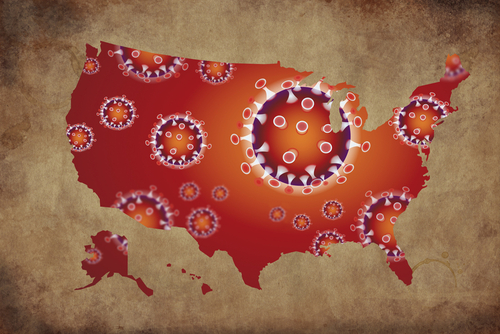
U.S. Reps. Abigail Spanberger (D-VA) and John Katko (R-NY) introduced a bill to enhance the nation’s readiness to prepare for and respond to public safety and national security threats – including pandemics.
Their bill — the Analyzing Disaster Vulnerabilities and Applicable National Capabilities for Emergencies (ADVANCE) Act – would resume a discontinued program that analyzed the impacts of threats on critical infrastructure.
In 2005, the U.S. Department of Homeland Security’s (DHS’) National Infrastructure Simulation and Analysis Center (NISAC) produced detailed analyses of what would happen to critical infrastructure sectors and systems – including transportation and hospitals – if a pandemic or another type of threat or disaster hit the United States. However, according to news reports in March 2020, DHS stopped updating the modeling and analysis effort focused on understanding the impact of pandemics on critical infrastructure in 2017. This left the federal government without critical insights as the COVID-19 crisis began.
Specifically, the bill would direct NISAC to conduct hazard exercises twice a year to test and improve the federal government’s ability to simulate the impact of natural disasters and public health crises on critical infrastructure.
“During my time as an intelligence officer, better information meant better odds of preventing and mitigating threats on the horizon. As the COVID-19 crisis began, our government lacked the information it needed to make informed policy decisions and to work with state and local governments on an effective, coordinated response,” Spanberger said. “By bringing back – and bolstering – critical DHS modelling and assessments, the ADVANCE Act would strengthen our government’s ability to respond to future public health crises and natural disasters. Our government’s first priority must be keeping our communities safe, and this bipartisan legislation would equip our agencies with the tools, data, and hands-on training they need to respond to future emergencies and save lives.”
In addition to the biannual hazard exercises, the ADVANCE Act would require NISAC to report annually to Congress on the potential impacts of natural disasters and public health emergencies on critical infrastructure.
“I am proud to introduce this critical legislation that will ensure our government is well-equipped to handle future natural disasters and public health crises,” Katko said. “The COVID-19 pandemic has highlighted the need for increased coordination and updated procedures in the face of events that threaten our nation’s critical infrastructure. This legislation will ensure our government is fully prepared to make informed decisions and mitigate the effects of any future public emergency.”




